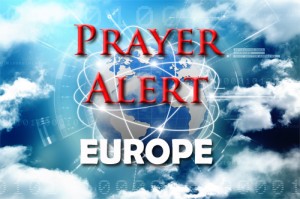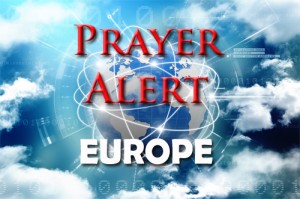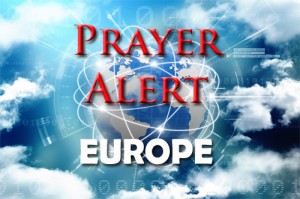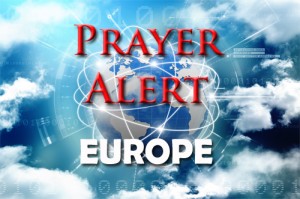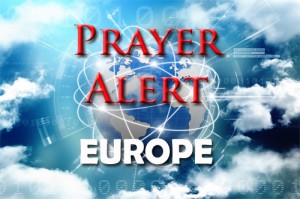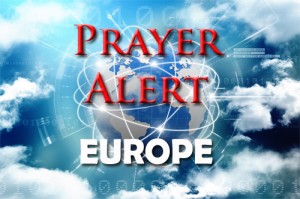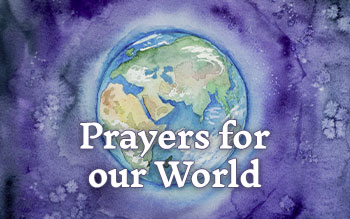Displaying items by tag: Europe
Protests and demonstrations
For days, thousands of Hungarians have demonstrated against the rule of prime minister Viktor Orban (see ). Opposition parties, student groups and civilians object to two new laws: one allows employers to ask for up to 400 hours of overtime work per year, and the other has set up a parallel judicial system which will severely undermine judicial independence. A Budapest-based research group observing the protests said there is a committed opposition against the government, and it could be the starting point of a broader movement. Meanwhile, French 'yellow vest' protesters have demonstrated for five consecutive Saturdays against President Macron’s rule. The movement was initially against fuel taxes, then education reforms, and now many issues bring them to the streets, even though their protests have forced the government to adjust its economic course. Also, the UN migration pact has brought thousands of demonstrators on marches in Brussels near major EU facilities, amid fears that it could lead to an increase in immigration.
Ukraine: birth of new church brings violence
Young men brought clubs and brass knuckles to Pechersk Monastery in Kiev, intent on disrupting worship. Police spread-eagled them against a wall depicting centuries-old frescoes of saints, then hauled them away. Meanwhile at a small church in the centre of Kiev, a dozen men organised round-the-clock guard duty against nationalist radicals making their third attempt in a year to seize their place of worship. These incidents underline Ukraine’s potent, possibly explosive mix of politics, religious faith, and national identity that is emerging in the creation of an Orthodox church of its own. There are deep concerns about what will happen to the 12,000 churches and their property in the church split. The war between Ukrainian forces and Russia-backed separatists, which has killed 10,000+ people, has increased hostility towards the Moscow Patriarchate churches. With such passions on both sides, it is feared that more violence between the two sides lies ahead.
Raising awareness of climate change
An artwork was unveiled in London on 11 December, to coincide with the climate change conference taking place in Poland. Centuries-old Greenland icebergs weighing between 1.5 and 6 tonnes keep melting. This installation seeks to bring the effects of climate change closer to home, putting people in direct contact with its effects. The icebergs remind us we have only twelve years to limit the worst effects of climate change, and they also represent another 10,000 blocks of ice which are falling from the same ice sheet in Greenland every single second. ‘People need to face the tangible consequences of their actions’, states the artist on his website. Meanwhile NASA has detected new signs of large glaciers in East Antarctica losing ice. This area has long been considered more stable than West Antarctica.
Importance of the family
In addition to all Europe’s other problems, falling birth rates pose a huge threat to family and national life. At present there is no EU member state that has a birth rate high enough to enable the renewal of the population that is ageing. The demographers and political decision-makers need to pay attention to this situation and find solutions through policy-making. Last year, more deaths than births were recorded across the EU, meaning that the natural change of population was negative. Pray for a political and social environment that favours marriage and family. The Gospel is the profound response to change people’s hearts and convert corrupt systems in our societies.
Netherlands: non-stop church service protects family
Preachers at the Bethel Church in the Hague have been holding a round-the-clock service for over a month to stop a family of Armenian asylum seekers being deported. The family has lived in the Netherlands for nine years, integrated into the community, and made friends. But a court ruled on 25 October that they must return to Armenia. A centuries-old tradition states that authorities cannot enter a church while a service is taking place, so a service has continued since 26 October. The Tamrazyan family - mother, father, two daughters and a son - are staying inside the church, and therefore avoiding immigration authorities. The family’s asylum issue is still unresolved. The Dutch ‘children's pardon’ grants asylum to children who have lived there for over five years while their asylum application is processed. This action also calls attention to the fate of 400 children in similar circumstances.
Poland: climate change conference
Participants at the UN climate talks in Poland have discussed how they will keep promises made in 2015 to reduce their climate footprint by 2020. Global warming occurs when carbon dioxide and methane emissions increase, trapping solar energy. As more gases enter the atmosphere, earth’s temperature rises rise; changing the timing and length of seasons and the amount and frequency of rainfall - rising sea levels, flooding, droughts and a range of ecosystem changes affecting life on earth. Two years ago, research found (see) that widespread adoption of vegetarian diets would cut food-related emissions by 63%. There are 3.6 billion sheep, cattle, goats and buffalo on the planet, 50% more than fifty years ago. Methane from their digestive systems is the single biggest human-related source of greenhouse gas. This is a great concern to the livestock industry worldwide. See also
France: deep-rooted anger
In Florian Dou’s shopping cart there was a packet of sausages and not much else. He had spent all his salary ten days before the end of the month. To survive when the money runs out before the next payday is a monthly challenge for him and many others in provincial French towns. Mr Dou was angry, and used what money he had left to drive 250 miles to join fiery protests in Paris, where police moved in with teargas, water cannon and rubber bullets against those protesting against fuel tax and price rises. Dou vowed the protesters are not going anywhere: see https://www.nytimes.com/2018/12/02/world/europe/france-yellow-vest-protests.html The gilets jaunes (‘yellow vests’) protests have come to embody widespread disillusionment with President Macron and are gaining intensity. Macron has now abandoned fuel tax increases. Some protesters said his surrender came too late, and does nothing to quell the mounting anger at a government they consider out of touch with the problems of ordinary people.
Bulgaria Revises Proposed Church Restrictions
Bulgaria Revises Proposed Restrictions on Churches
Update: After considering laws to halt training, foreign funding, and missionary outreach, the European nation eases its approach.
Following an outcry from evangelicals and other faith groups, Bulgaria opted to revise a controversial proposal to restrict religious activity before putting it up for another parliamentary vote.
The initial draft amendments to its Religious Denomination Act would have kept members of minority faiths, like Protestants, from operating seminaries, holding activities outside church, and obtaining legal status. It also regulated foreign missionaries and funding. (See CT’s initial reporting below.)
The revised version adjusts the formula for state subsidies so that groups beyond the Bulgarian Orthodox and Muslims—which together comprise 95 percent of the population—are eligible, the Sofia Globereported. The adjustments follow a round of feedback from religious groups and discussion between two political parties in the legislature, after a November 16 deadline.
The updated law also would allow greater freedom to foreign missionaries than the first proposal; they could preach in the country as short-term residents or as visitors coming with advance notification. The new amendment also does away with a ban on anonymous donations by foreign groups.
As of Tuesday, the parliament had not yet voted on the restrictions, according to the Baptist Standard. TeodorOprenov, a Sofia pastor and leader in the Baptist Union of Bulgaria, told the site that evangelicals expected “some softening” after the meetings.
Thousands of Christians have been gathering before the parliament building each Sunday to protest and pray against the restrictions. They plan to continue rallying this Sunday, November 25, Oprenov said.
Original post (November 16): A controversial new law before the Bulgarian Parliament would keep Protestants and other minority faiths from freely worshiping, teaching, evangelizing, and tithing in the southeastern European nation.
Today’s vote marks the legislature’s second hearing for amendments to Bulgaria’s religious denominations act, which were initially approved October 4.
Over the past month, leaders from all faith groups in the former communist country have condemned the proposed additions, which prevent minority religions from offering clergy training, restrict worship services to designated sites, and place new regulations on international missionaries and giving.
“Should the law pass, existing theological seminaries are at risk of shutting down, evangelical church pastors may no longer be able to conduct worship services, and the acceptance and use of donations will be subject to government approval and limitations,” stated the World Evangelical Alliance, which has joined with the Bulgarian Evangelical Alliance to oppose the legislation.
About 2,000 Christians gathered at the Bulgarian capital, Sofia, on Sunday to pray and protest against the proposed amendments, The Baptist Standard reported, and they have continued smaller demonstrations in hopes that the law will be rejected.
Evangelical Protestants make up less than 1 percent of the population in Bulgaria, where about 85 percent of citizens consider themselves Eastern Orthodox and about 10 percent are Muslim. Because of their small size, Protestants—along with Catholics, Jews, and others—fail to meet the threshold for certain government recognition under the draft law, which legislators say is meant to protect against foreign threats but religious groups see as a threat to their own religious freedom.
Christian churches across the country—including the United Methodist Church, Bulgarian Baptist Union, Bulgarian Evangelical Alliance, Catholic Church in Bulgaria, and National Alliance United Churches of God—each released statements against the proposal, reportedVladyRaichinov, an evangelical leader and pastor in Sofia.
The European magazine Evangelical Focus summarizes the biggest concerns with the amendments:
Only Bulgarian citizens will be able to carry out liturgical activity if they have had theological training in Bulgaria or their foreign school is approved.
Only Eastern Orthodox and Muslim believers will be able to train clergy and run schools.
A foreigner will only be able to preach if doing so with a Bulgarian ordained minister.
Foreign donations will only be allowed for building construction or social aid and will need government approval. No salaries of pastors, for example, could be paid from abroad.
No religious activities can take place outside of buildings designated for them.
Only religious groups with +300 people will have legal status.
Two years ago, Russia adopted similar restrictions on missionary activity and evangelism, also citing national security concerns. The 2016 “Yarovaya law” bars the non-Orthodox from sharing their faith outside of government-recognized church buildings.
Though only about 60,000 Protestants live in Bulgaria, according to 2011 census figures, the population has received vocal support from evangelical leaders in Europe and beyond.
European Baptist Federation general secretary Anthony Peck and Baptist World Alliance general secretary Elijah M. Brown wrote Bulgarian Prime Minister BoyokovBorissov with concerns that “… the implementation of this law could lead to unintended restrictions on religious freedom and the direct persecution of churches and individuals of faith.”
“These efforts to interfere with theological education, restrict missionary and worship activity, and control international donations in fact wrongly extends government power into the internal life of Bulgarian religious communities,” they said. “No state, we believe, should be in a position to control the training and activities of ecclesiastic ministers, nor should a state favor one faith expression over another.”
The proposed law, opponents worry, would represent a step backwards for their country, which was under Communist rule until 1990.
“The legislative proposal is a sad reminder of a bygone Communist past, which we believed would no longer return,” Christo Proykov, Catholic bishop of Sofia and president of the Bulgarian Bishops, told SIR.
Bulgarian media report that larger religious groups have likewise condemned the restrictions. Orthodox bishops stated that the amendments are “ambiguous and will fail to deliver the expected results. They must be seriously reconsidered to shun any doubt on the consolidated, positive cooperation between the State and the Church.” Major Muslim leaders also met with the prime minister to object to the law, including the provisions against smaller faiths.
Protestants have had to fight for their place in Bulgaria, from being driven underground during Communist rule to fighting back against what Christianity Today called “a swelling wave of religious intolerance that includes government restrictions, vitriolic media attacks, and even violent assaults” in the 1990s.
A year before the 2002 religious denominations act was adopted in Bulgaria, Sofia-based religious liberty lawyer Viktor Kostov wrote for CT about the struggle to grow a healthy church in a country “stuck in a wounded culture” and “haunted by totalitarianism.”
Pray: That the full freedoms of the churches and missionaries are protected.
Pray: That this legislation will be overturned.
Pray: For the protection of those who are campaigning and representing the church on these important issues at the highest level.
Pray:for the Spirit of Antichrist to be bound.
Pray: for Bulgarian Christians to have a voice, and to be listened to.
Pray: for better relations between the Bulgarian Church and Government.
Ukraine - Russia Conflict - PRAY
Ukraine will not allow Russian men aged 16-60 into the country following the imposition of martial law, Kiev says. An exception would be made for "humanitarian cases" such as those travelling to funerals. Russia says it is not planning retaliatory measures.
Martial law has been imposed in 10 Ukrainian regions until 26 December 2018.
The move came as Ukraine's president expressed fears of a Russian invasion after Russian forces seized three Ukrainian boats and 24 sailors.
Ukraine said Sunday's incident in the Black Sea was a flagrant violation of international law, while Russia says the vessels violated its territorial waters.
It is the most dangerous clash at sea off Crimea since Russia annexed the peninsula from Ukraine in March 2014.
What did Ukraine say?
The restrictions were announced after President Petro Poroshenko met the country's top security officials, including border guard chiefs, in Kiev.
The president tweeted (in Ukrainian) that the ban was designed to prevent the formation of "private armies" in Ukraine.
He was referring to Russian-backed separatists who formed units in April 2014 to fight Ukrainian government forces in eastern Ukraine.
Mr Poroshenko also said registration criteria would be tightened for Russian citizens in the regions under martial law.
On Tuesday, he warned there was a threat of "full-scale war" with Russia.
"The number of [Russian] tanks at bases located along our border has grown three times," the president said.
Five of the 10 regions border Russia while two are adjacent to Moldova's breakaway Trans-Dniester region, where Russian troops are stationed. The other three regions border the Black Sea or Sea of Azov close to Crimea. (See article image courtesy of BBC)
The BBC's Jonah Fisher in Kiev says the ban could have a devastating impact on cross-border travel as the holiday period approaches. Many Russians have relatives living in Ukraine.
Reacting to the Ukrainian ban, Russian Foreign Ministry spokeswoman Maria Zakharova said Moscow was not planning "mirror" measures as this "could result in full madness".
Russia earlier said the 30-day martial law in Ukraine had been declared in order to potentially suspend presidential elections set for 31 March.
It said President Poroshenko - whose approval ratings have plummeted - would then be the main beneficiary.
Mr Poroshenko denies the claim, saying the polls will be held as scheduled.
Please Pray:
That the situation does not escalate.
That this long running situation can be diplomatically resolved.
That people will be able to travel freely across the border again, especially looking forward to Christmas.
For peace in the region.
Prayer for Bosnia
Your Peace Returns to You
Our last prayer topic was praying about finding a house were your peace would remain. In that house was a person of peace who would be key in moving forward the Good News in their family, with their friends and in their village. This prayer topic is about giving wisdom and freedom to the pioneer missionaries to move on to another village, town or city. Jesus tells His disciples,
"But when you enter a town and are not welcomed, go into its streets and say, ‘Even the dust of your town we wipe from our feet as a warning to you. Yet be sure of this: The kingdom of God has come near.’" Luke 10:10-11
Pray for pioneer missionaries to grow in knowing the Lord's peace
Pray for them to know when that peace has not returned to them as a sign to move on to the next village.
Pray for the disciples advancing the Gospel to have much wisdom in all of this.
Pray for cities to desire to repent.
Readers are invited to consider praying for a special project that will kick off on Monday, December 3rd. If you’d be willing to intercede for Bosnia for 31 days from December 3rd to January 3rd, please print the ATTACHED PDF and put the 31-day guide with your quiet time or Bible study materials.
Prayer is such a crucial component in the breakthrough work we are asking God to do.
On December 4th, we will once again begin using social media to creatively find spiritually seeking people in two Bosnian cities, Sarajevo & Tuzla. As you know, we tested this media approach last May and we were greatly encouraged by what God did in that 30-day test run. As our team begins to talk with people online, our goal is to move the conversation offline and meet them for face-to-face discipleship.
Please print the PDF on the link below and join us as we pray over the different facets of this initiative. There is great potential for Kingdom expansion!
Thankful for your partnership in prayer for Bosnia,
Pray4Bosnia Team
Email: This email address is being protected from spambots. You need JavaScript enabled to view it.
